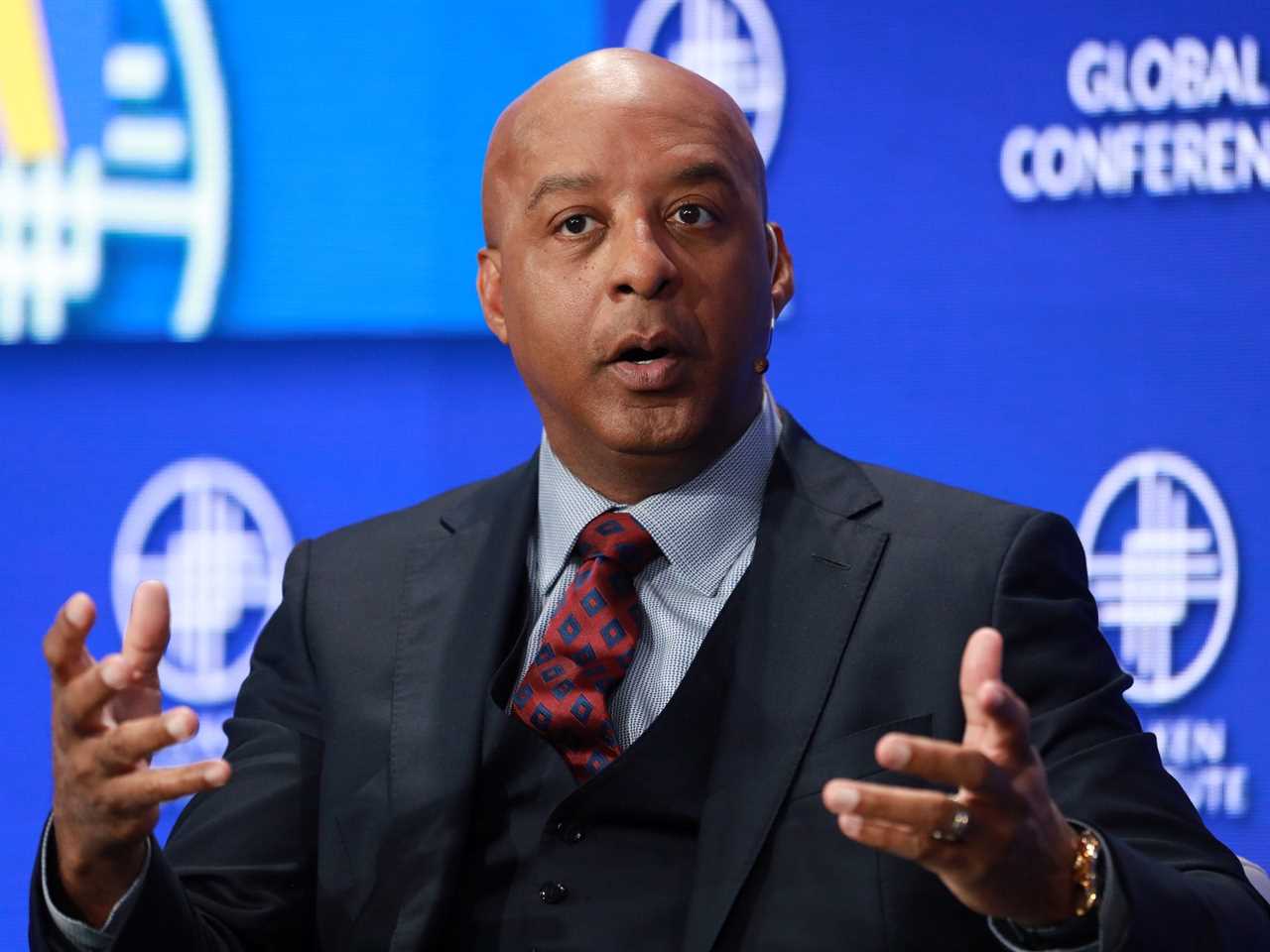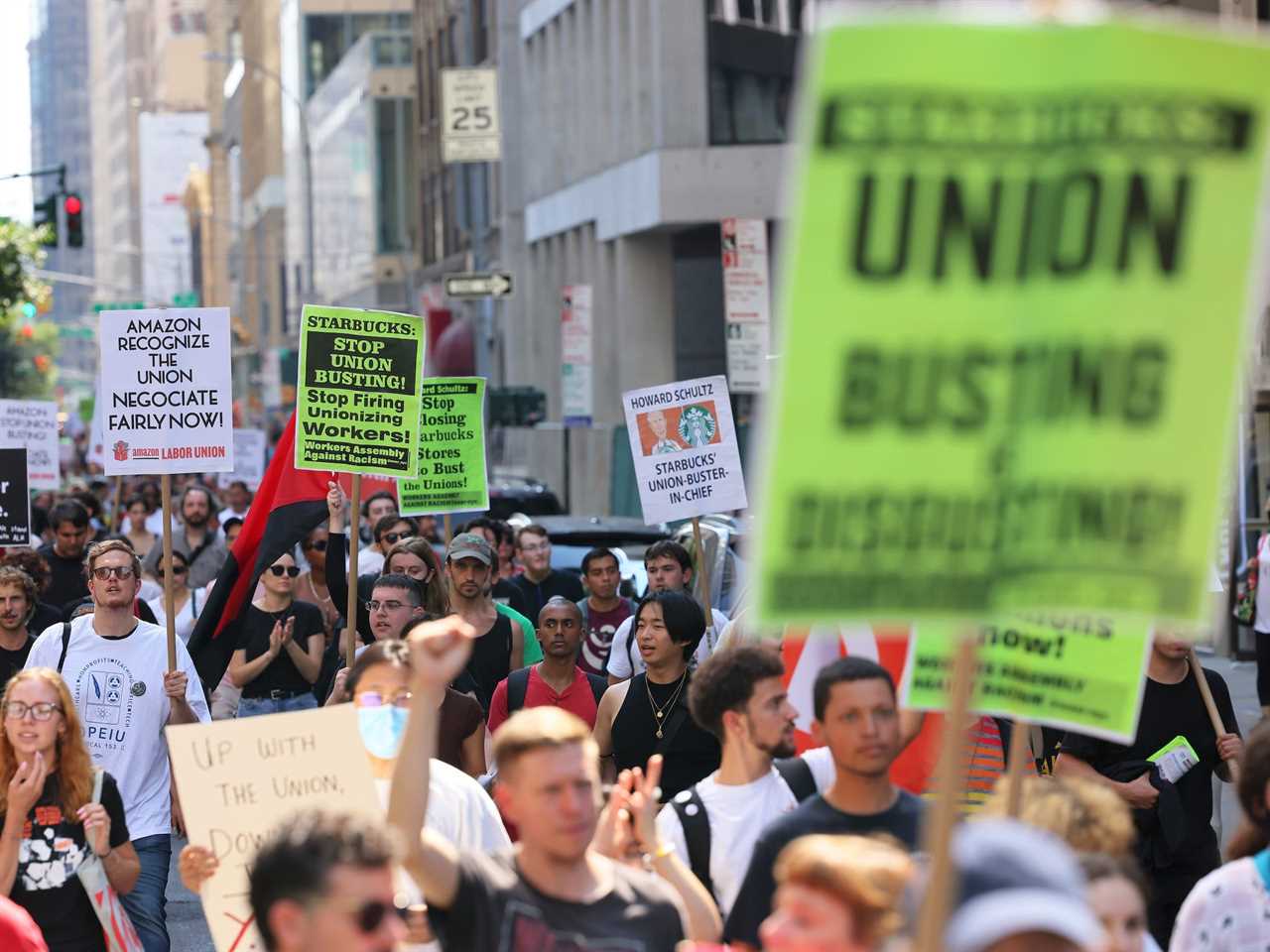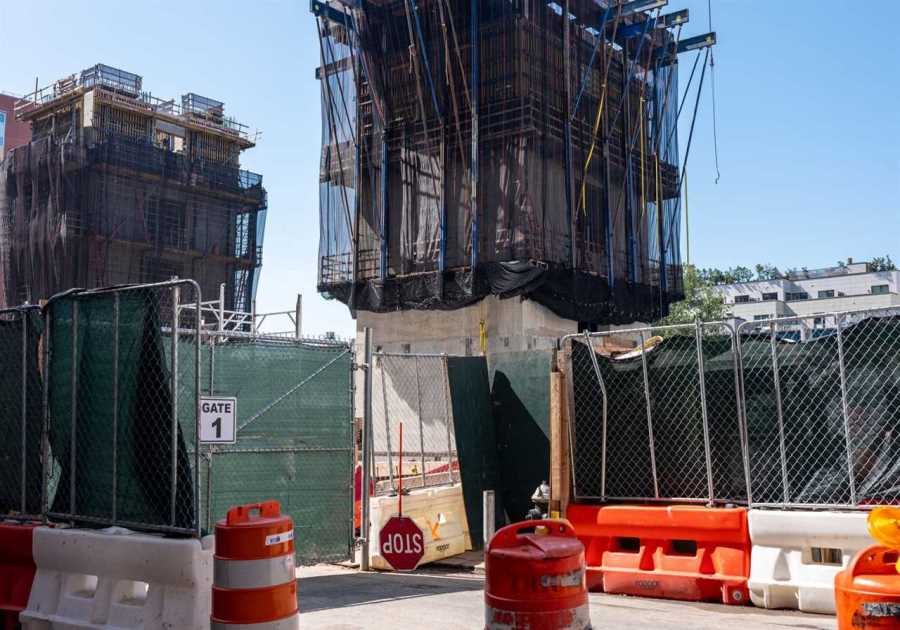Oliver Douliery/Getty, Mandel Ngan/Getty, Anadolu Agency/Getty, Business Wire/AP Exchange, Andy Kropa/AP Exchange, Tyler Le/Insider
- At least 10 large retail companies have lost their CEOs in recent months.
- The turnover has roots in the pandemic, when e-commerce boomed and supply chains were disrupted.
- As the pandemic winds down, and a possible recession approaches, new skills are in demand.
Just over a week after Stitch Fix's CEO stepped down, Bill Gurley, a board member and famed investor, made, in his own words, an "unconventional" move.
"If you know someone who would be perfect for the $SFIX CEO opportunity, we are all ears," Gurley tweeted. "Looking for operating prowess, strong product instincts, & a strong cultural leader."
It's the surest sign yet of a crisis facing the retail industry. Gap Inc.; Bed Bath & Beyond; Under Armour; Adidas; Foot Locker; Dollar General; Kohl's; VF Corporation, the owner of Vans; Designer Brands Inc., the parent company of DSW; the luxury-consignment marketplace The RealReal; and now, the personal-styling and clothing site Stitch Fix, have recently had leadership shake-ups. And while some have successfully found new CEOs, others seem to be struggling to fill one of corporate America's most-coveted jobs.
Experts told Insider the burst of turnover traces back to the pandemic. Supply chains got snarled, shoppers stopped visiting stores, and stimulus payments spiked demand, each making it difficult to measure how business was doing. As pandemic restrictions have eased and a possible recession nears, boards of directors are getting a better look at the underlying numbers and doing some "housecleaning," but struggling to find good candidates.
"Everyone was forgiving during the pandemic, but now we're anticipating we might get into rougher waters," Felipe Caro, a professor of operations at the UCLA Anderson School of Management, told Insider. "Many boards are saying, 'Do we have the right person? We better make these changes given that things are not going to get any easier.'"
The pandemic made retail a nearly impossible business

David Swanson/Reuters
Even in good times, retail is difficult.
"The retail business is tough, largely because it is such a volatile industry," Mark Cohen, the director of retail studies at Columbia University, said. "It's an industry that trades with billions of customers and it's an industry that lives and dies on the vagaries of consumer preference and behavior."
The pandemic made it nearly impossible.
Stores shut down and people stopped shopping in person. Then stimulus payments sent demand for everything from sneakers to home goods spiking while supply chains snarled. And just when supply chains started to sort themselves out, inflation hit, and shoppers started to scale back spending. Inventories ballooned.
That's also about the time boards started to realize they might need new CEOs, but there aren't many great candidates in the wings.
Retail jobs were once considered stepping stones to launch employees into a long career in the industry. Marvin Ellison, the CEO of Lowe's, got his start making $4.35 an hour as a Target security guard; Costco's chief exec W. Craig Jelinek's first job was as a food stocker at a discount department store, and he worked his way up the ranks at Costco over three decades.
Now, management training has fallen by the wayside, Catherine Lepard, the global managing partner of the executive-recruiting firm Heidrick & Struggles' retail and direct-to-consumer practice, said.
Department stores, for instance, once were "theaters of management-training programs," but then they started facing stiff competition from specialty stores.
"That's when they started to scramble to say, 'Oh gosh, what do we need to do to trim our costs, become more lean, become more agile, become more nimble?'" she said. "That's where we started to see less of the longer-term investment in training."
That means many retailers simply don't have as many management candidates, even though CEOs of large retail companies can make tens of millions of dollars annually.
That's led to some retailers hunting for CEOs outside of the retail world — Under Armour hired Stephanie Linnartz, a Marriott Hotels veteran, to lead the company, for example — while others, like Gap, still haven't filled their top job.
"The reality of doing the CEO search today, and we've got a number of them underway right now, is that if you just stick to the retail sector, it's a pretty limited pool of candidates," Lepard said.
Retail CEOs need 'peripheral vision'

Michael M. Santiago/Getty Images
Given the chaos of the past few years, some boards will likely opt for CEOs with excellence in basic operations.
"Some really need to go back to basics and they need somebody who can rationalize inventory decisions and just get things in order," Caro said.
Cohen, who spent two decades in executive roles, most recently as Sears Canada's CEO, said chief executives also need experience dealing with customers.
"You have to be willing to put in the face-time and elbow-grease effort to become familiar with what you're getting into at a pretty detailed level," he said. "That can take six months to a year, so you have to be careful about jumping in and starting to pull levers without really knowing what the effect will be."
Given the ongoing turbulence and unpredictability, boards also want CEOs who can see around corners.
"The table stakes for the CEO of a successful complicated retail business have fundamentally changed," John Danner, a senior fellow in the UC Berkeley Haas School of Business, told Insider.
Danner said retail CEOs today need to be innately curious and able to quickly learn new subjects, what he described as a sort of "peripheral vision." For example, two years ago, nobody needed a metaverse strategy. Now, it's another item on the CEO to-do list.
So is labor unrest. Chief executives at retailers ranging from Amazon and Target to Starbucks are working through tangles of new problems with nascent unions. Among the thorns in those discussions: the pay chasm between CEOs and retail workers.
Danner wasn't surprised that a number of companies — including Under Armour and Foot Locker, both in male-dominated sportswear — have hired female CEOs.
"Really effective leaders in times of crisis are usually women and women who are terrific translators," he said. "They can translate ambitions and uncertainty into a story."
"Stories are one of the best tools for how we make sense out of complexity," Danner said. "In this kind of environment there is a real premium on a CEO's ability to develop a simple, compelling, emotionally magnetic story about what they're trying to do and why. A powerful story can buy you some time."
Read More
By: [email protected] (Matthew Kish,Avery Hartmans)
Title: Retail CEO crisis: why the industry's top job is suddenly the hardest to fill
Sourced From: www.businessinsider.com/retail-ceos-leaving-stepping-down-trend-explained-2023-1
Published Date: Mon, 23 Jan 2023 10:00:00 +0000
Did you miss our previous article...
https://trendinginbusiness.business/politcal/sorosbacked-prosecutor-suspended-by-desantis-lashes-out-at-florida-governor-after-losing-bid-to-get-job-back-video
.png)





